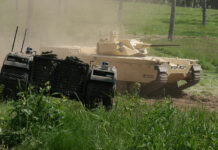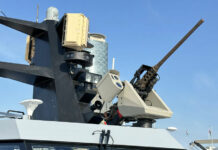For nearly six decades, Israel’s security doctrine was premised on three pillars: Deterrence, early warning, and quick victory. This was Israel’s traditional national security doctrine, which has undergone only a few changes, over the years, but added a fourth highly important, pillar- self defense, in face of the emergence of the growing missile and nuclear threat. Following the 2006 Second Lebanon War and the looming Iranian nuclear threat, self defense has become a dominant factor in Israel’s national security doctrine.
What Israel lacks these days, is a winning strategy. In a soul-searching article, veteran analyst and military expert, Ron Ben Yishai, elaborates his views in a series of articles published on the eve of Yom Kippur in Ynet. Here are some of the major highlights of his unique elaborations.
The “slow destruction” strategy was conceived by Iran and Syria, and other radical Islamic elements, to undermine Israel’s staying power and thus ultimately wipe it off the map. Hezbollah, which utilized this strategy to some degree of success during the Second Lebanon War, gave it its name: Muqauma (“Resistance” in Arabic.)
The ultimate aim of this strategy is to gradually minimize Israel’s territory, in a manner that would turn it’s Jewish population into a convenient and concentrated target for mortar shells, rockets, missiles, and terror attack, ( or ultimately, a “grand-slam” finale act of a nuclear attack), while making it difficult for the IDF to offer effective protective measures.
The hasty unilateral withdrawal from the South Lebanon Security Zone in May 2000 and Ariel Sharon’s dramatic and drastic evacuation Gaza Strip, gave the Muqauma a boost and motivation, because they were perceived as surrender to the pressures exerted by guerilla and terror. It also prepared the fiasco of the Second Lebanon War, from which Israel has yet to recover it’s political and military setback.
In its current format, the Muqauma identifies three Israeli vulnerabilities: The civilian home front, the Israeli public’s sensitivity to civilian and even more so, to IDF casualties and the sensitivity of it’s political leadership to international public opinion. Another factor, which the Jihadists, especially Hezbollah’s Hassan Nasrallah have been using, to an unprecedented extent of cynical skullduggery, is to exert psychological pressure on bereaved and captive families, exploiting the Israeli media within their ruthless goal.
The Muqauma carefully takes into account the IDF’s relative advantage in accurate air power, the maneuvering and attack abilities of ground forces, and the ability to acquire accurate intelligence information. As a result, the radical Islamic axis has upgraded the Muqauma strategy and premised it on the means and principles that enable its users to powerfully hit Israel’s weak spots, while minimizing or annulling Israel’s military advantages. Their missiles and ground-to-ground rockets are fired by the dozens and hundreds out of well-hidden sites and civilian population centers, mostly with the aim of disrupting the daily and economic routine and put Israelis in an ongoing state of anxiety. Russian-made anti-aircraft weapons systems that to some extent are said to be immune to disruption, are believed to become part of Hezbollah’s newly refurbished arsenal. According to intelligence reports from Lebanon, it appears that apart from it’s controversial fiber-optic communication network, Hezbollah, with Iranian expert assistance, are secretly preparing fortified anti-aircraft positions on Lebanon’s mountain peaks. Even Hamas in Gaza is attempting to equip itself with shoulder-held rockets and anti-aircraft machine guns.
What seems amazing is that after so many years of contending with the Muqauma, the IDF, other security branches, and Israel’s political leadership have been unable to formulate a sound counter-strategy and an appropriate arsenal of means that would enable the Jewish State to win. In fact, government and its diplomatic and security conduct are still zigzagging among three different strategic doctrines.
















